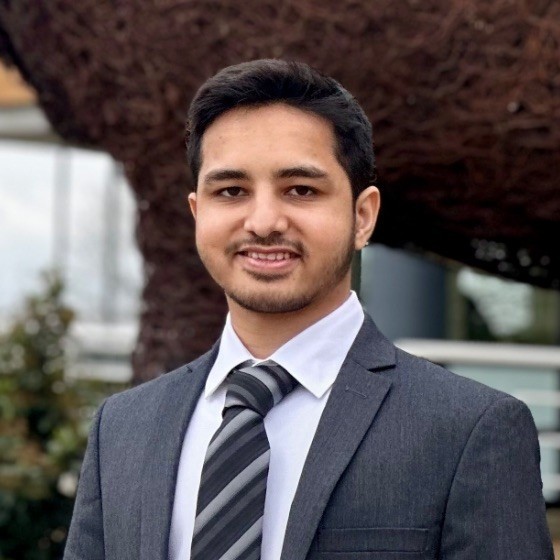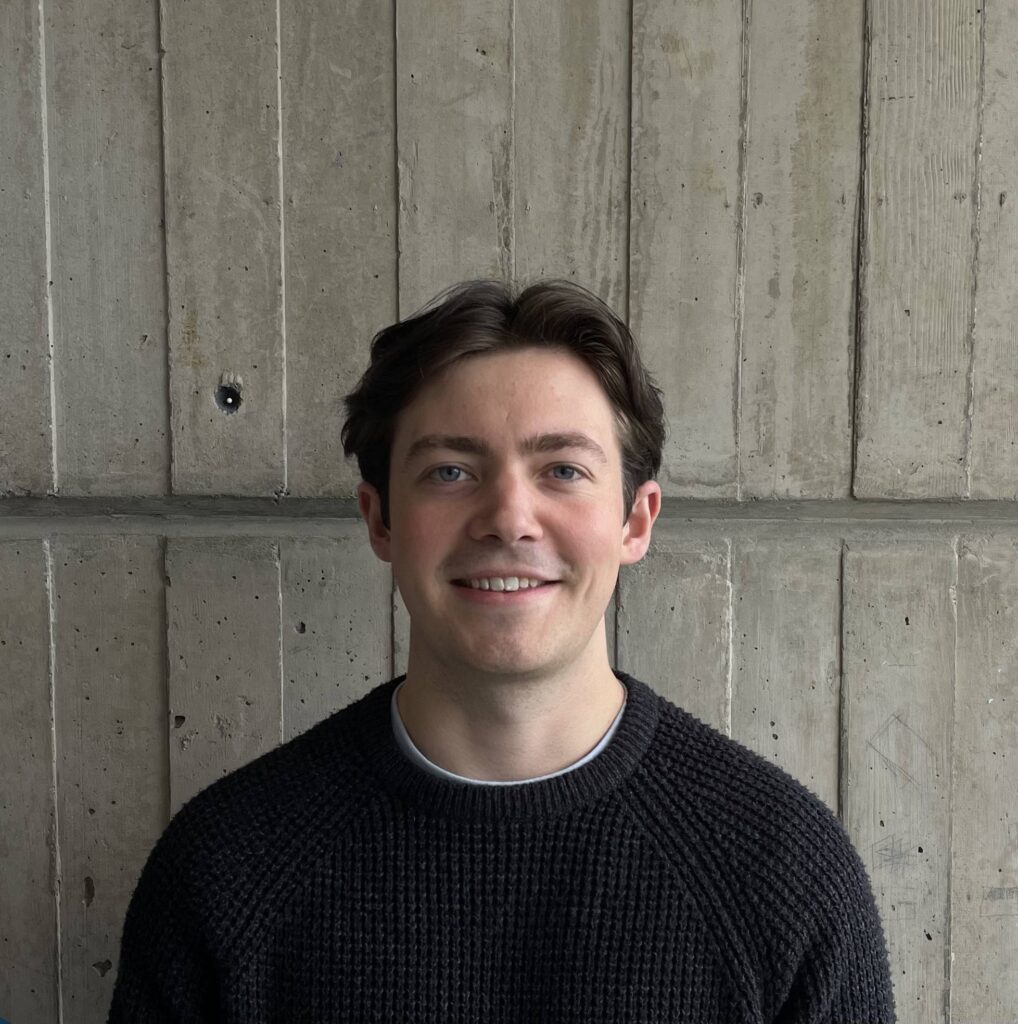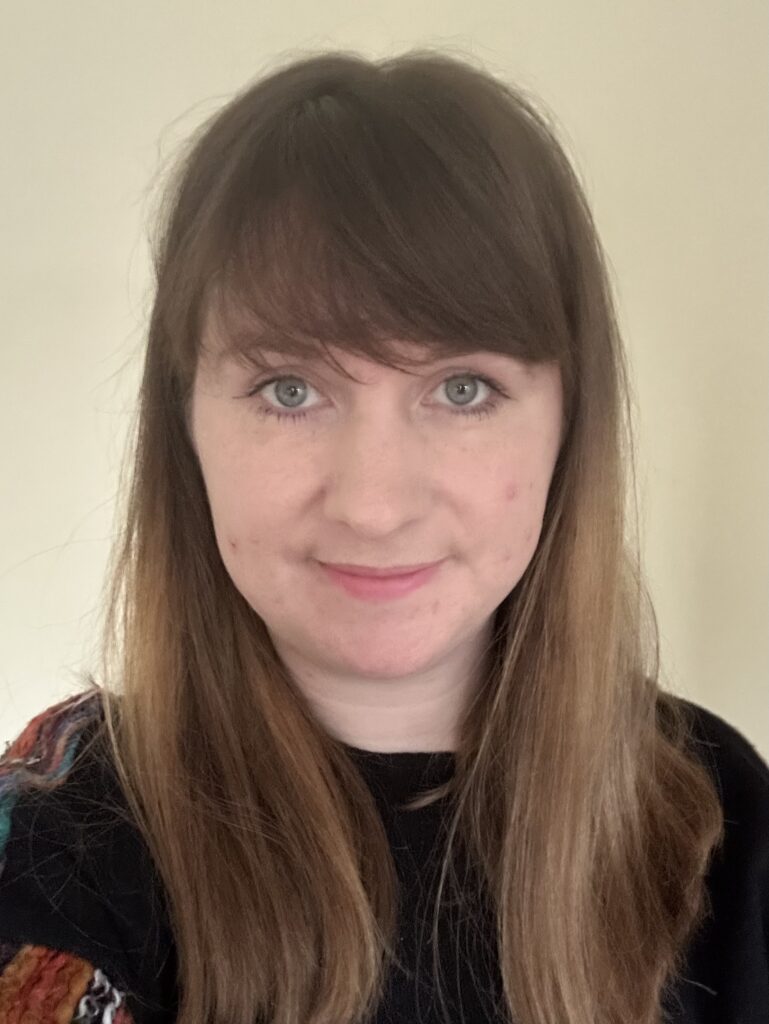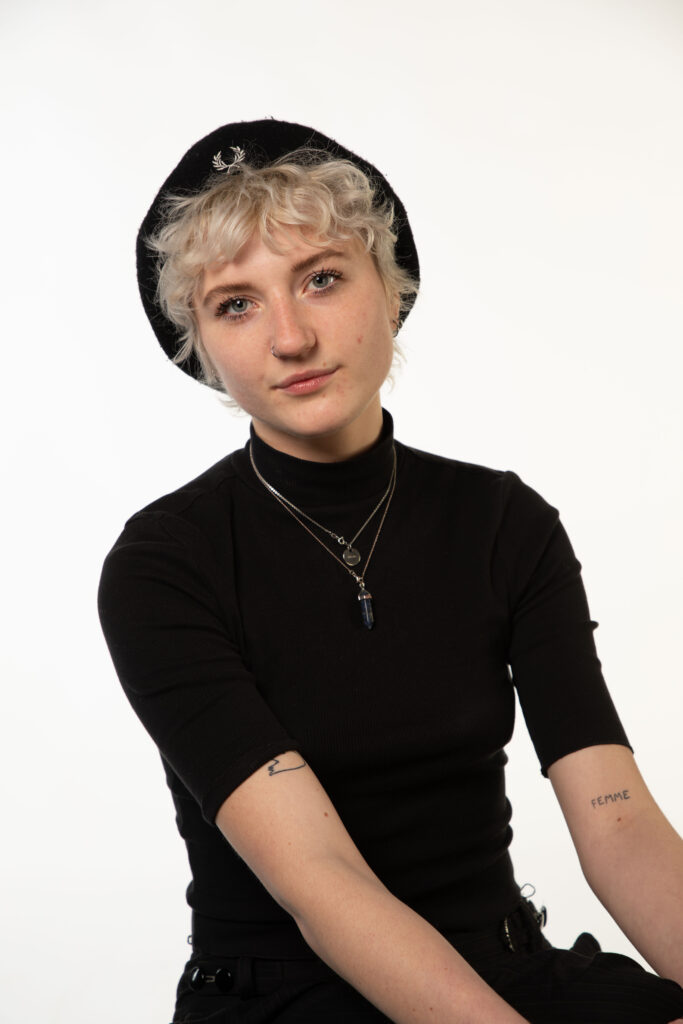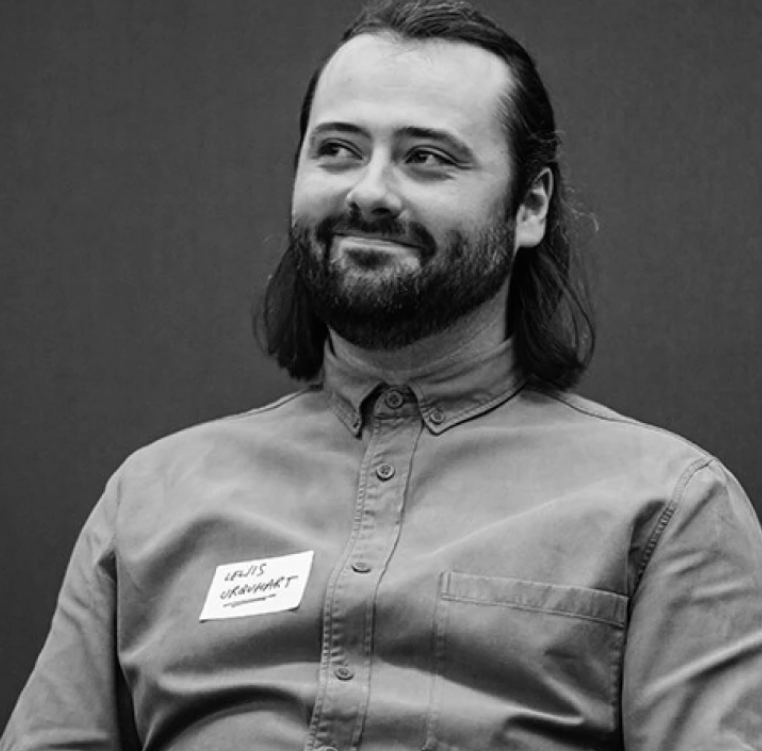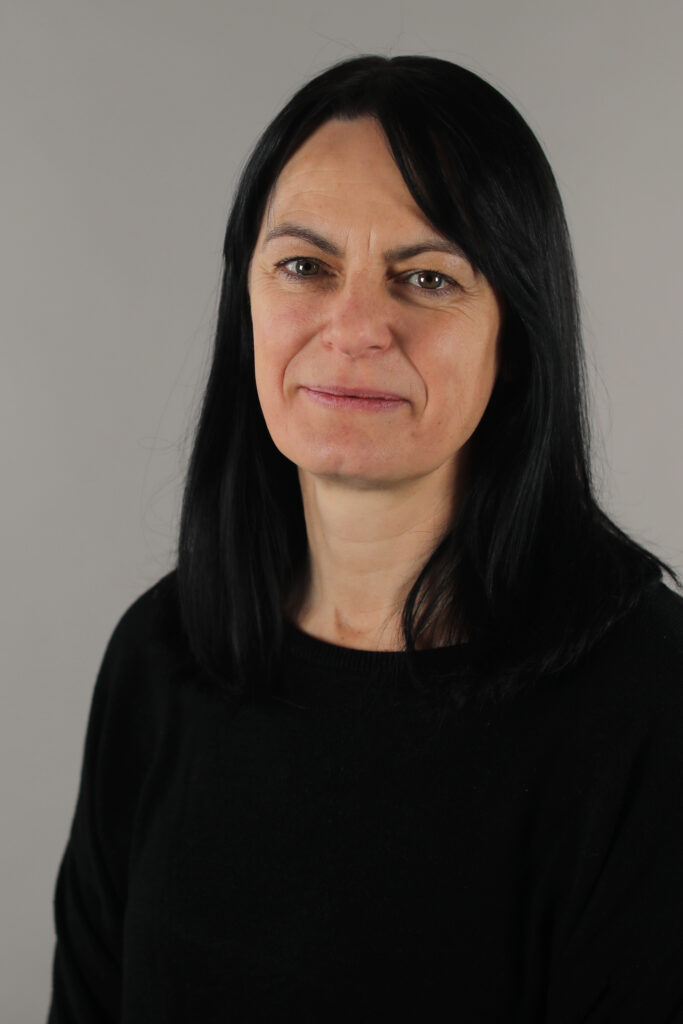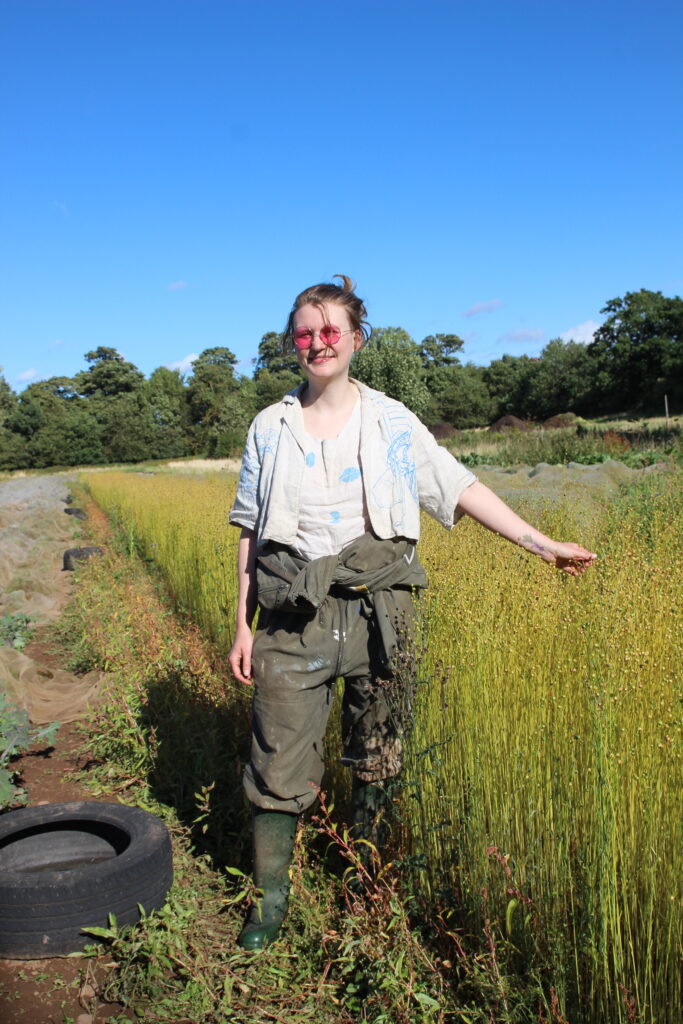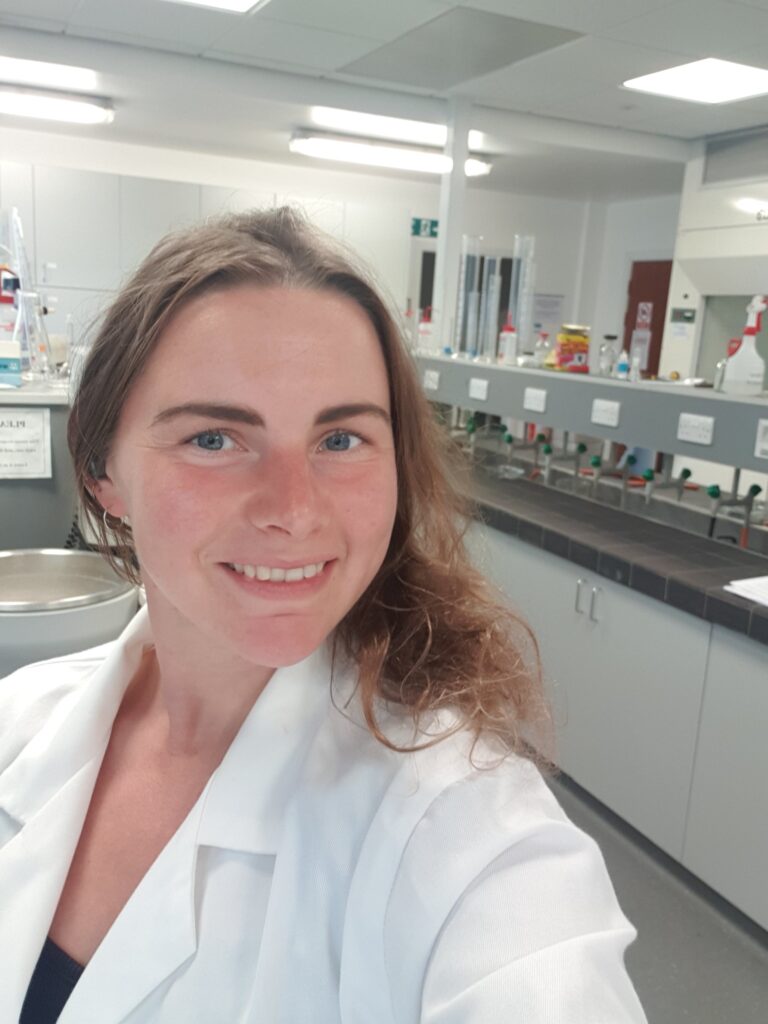Shifting Reflections
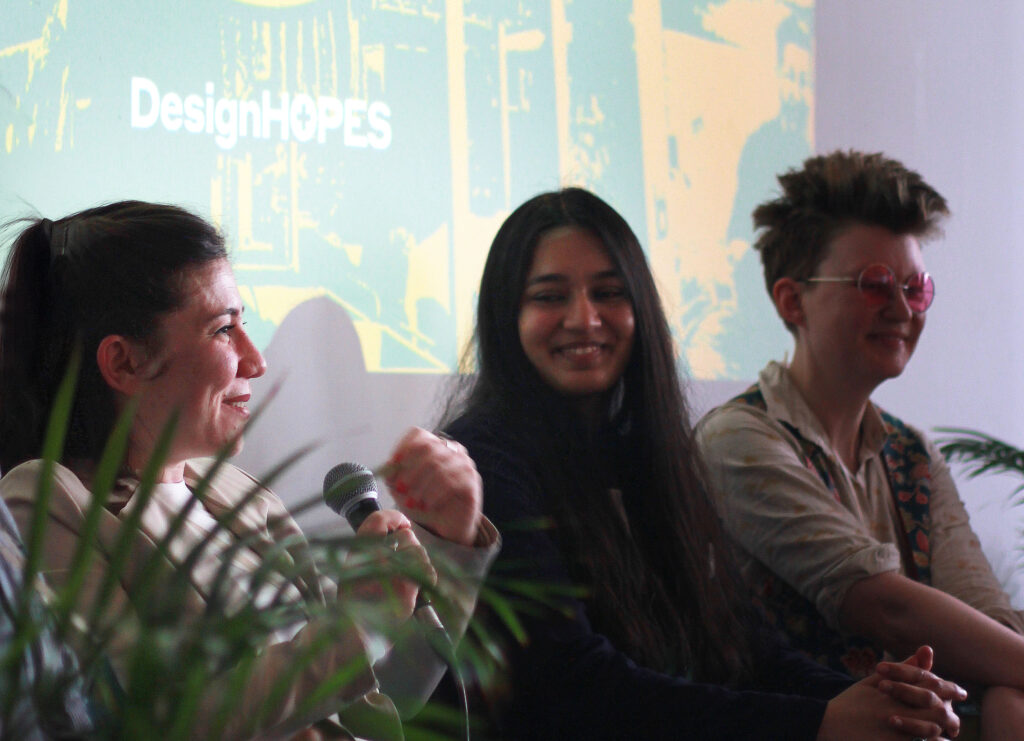
As part of our ongoing exploration into the role of design in shaping the health of people and planet, early career researchers from the Design HOPES project hosted SHIFT: Shaping Health in Future Times, a collaborative symposium held at Civic House in Glasgow on April 22, 2025. This gathering brought together researchers, designers, artists, and healthcare practitioners from across the globe for a day of creative collaboration and critical dialogue.
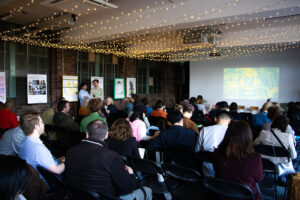
We were joined by researchers, designers, artists and healthcare practitioners from all over the world, including New Zealand, India, Italy, as well as Ireland, England and Scotland at Civic House in Glasgow on the 22nd of April 2025.
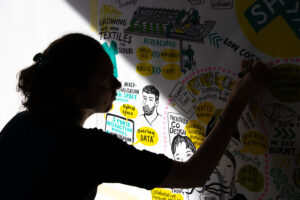
SHIFT aimed to reframe how we think about healthcare challenges in an era of climate breakdown. The symposium provided a vital platform to examine how design can respond to some of the most pressing societal and environmental issues of our time. Through presentations, hands-on engagements, and interactive workshops, we explored new perspectives on designing for health and planetary well-being, grounded in the overarching theme of Place, Product, Practice: Designing for Health and Planet.
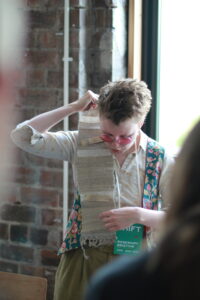
A distinctive feature of SHIFT was the integration of research artefacts at the heart of the event. Early career researchers presented objects from their work, inviting attendees to engage through touch, sound, and material interaction. We handled flax being processed into linen, listened to poetry emerging from welly boots, and examined prototype crockery made from straw. Engaging our senses beyond our eyes was vital in the success of SHIFT as it brought these prototypes to life and grounded abstract ideas into tangible form to make the work both accessible and memorable.
After lunch, participants engaged in a dynamic, quick-fire workshop, moving between stations to experience the Design HOPES artefacts up close. Delegates moved from one station to the next in small groups to get a friendly introduction to our work. This allowed for an open dialogue with curiosity and meaningful introduction to the Design HOPES work. Additionally, we were lucky to display posters of further excellent work in striking visual format to further offer a rich landscape of research and creativity.
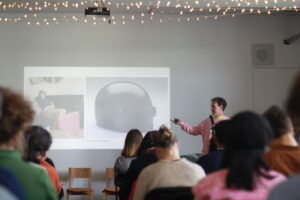
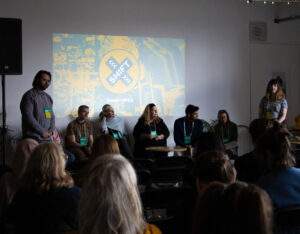
A key highlight of the day was the keynote address by Ivor Williams, whose reflective storytelling on design, death, and palliative care challenged assumptions and showed new possibilities. His talk grounded the day’s energy in emotional and spiritual dimensions, provoking thoughtful discussion and resonating deeply with the symposium’s themes.
Equally vital to SHIFT’s success was the active engagement of its attendees. Through open questioning, reflective dialogues, and thoughtful critique, participants enriched the intellectual atmosphere, embodying the collaborative spirit essential for addressing complex health and environmental challenges. Conversations sparked during the event continued to flourish on social media and beyond, fostering lasting connections and ongoing dialogue.
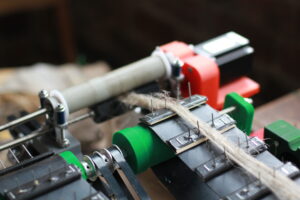
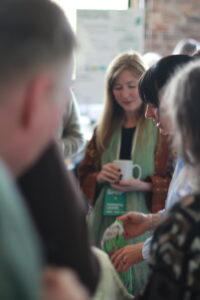
The symposium would not have been possible without the generous support of the Arts and Humanities Research Council (AHRC)/Future Observatory, whose commitment to advancing interdisciplinary research enabled this gathering. We are deeply grateful to our project leads and advisors: Paul Rodgers, Mel Woods, Madeleine Rooney, and Neil McGuire, whose expertise and mentorship were instrumental in shaping the symposium’s vision and impact.
We would also like to extend heartfelt thanks to Civic House for their outstanding hospitality. The thoughtful design of the venue and seamless logistical support created a welcoming environment that encouraged open exchange and collaboration.
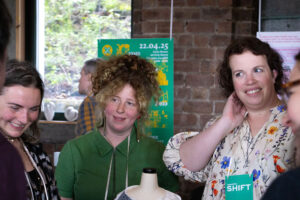
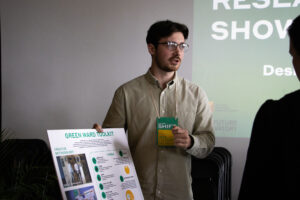

Enormous appreciation goes to the incredible SHIFT team, whose dedication and hard work ensured the success of the symposium: Lewis Urquhart, Laura MacLean, Jack Fletcher, Muhammad Ahmed Saeed, Lauren Bloor, Ania Wieczorkowska, Ian Edgecomb, Dr Jennifer Rao-Williams, Sophia Murden, Lucy Welsh, Sharon Summers, Finni Porter Chambers, and Natalie Bamford. Your commitment to fostering dialogue, curating impactful discussions, and creating an inclusive space for reflection and collaboration was truly inspiring.
Through conversations during the day and after, we felt that SHIFT has sparked lasting relationships. We spoke with several attendees who shared this will directly influence their current research, as well as practitioners who said the format of the day opened their eyes to other ways of working. We have seen continued dialogue across social media, and we hope that the positive interactions and ripple effects of the day will continue to flourish over time. For the early career research team, we learned the importance of facilitation and organisation for such a big event. We hope that delegates felt a warm welcome to SHIFT and truly hope that they enjoyed the day, spiritually and intellectually.
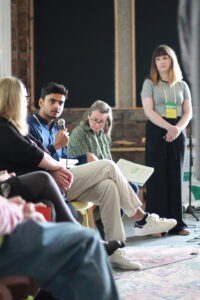
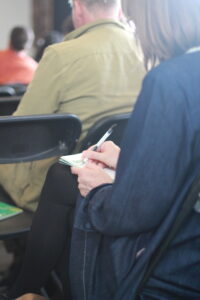
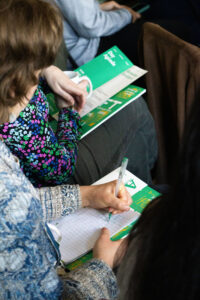
Looking ahead, we are excited to announce plans for a SHIFT publication, designed to capture the richness of the day and extend its reach. This will be an opportunity to document the insights, collaborations, and creative practices shared, ensuring the ideas cultivated continue to resonate and inspire action. SHIFT was not just an event; it was a catalyst for meaningful relationships, critical inquiry, and pioneering design-led responses to global challenges. We look forward to seeing how these seeds of collaboration will grow and shape the future.
View more SHIFT documentation here.

